Lip Augmentation in Bulgaria
Search and Compare the Best Clinics and Doctors at the Lowest Prices for Lip Augmentation in Bulgaria
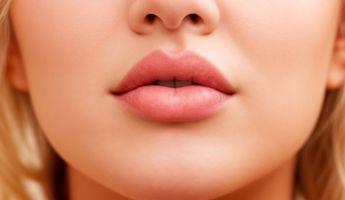
Find the best clinics for Lip Augmentation in Bulgaria
No clinics available
Egypt offers the best prices Worldwide
Price: $ 74

- Home
- Bulgaria
Compare Before & After Photos of _procedure_photos.phpLip Augmentation
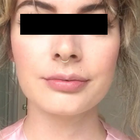
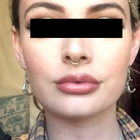
Front view
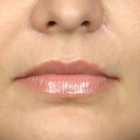
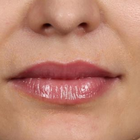
Front view
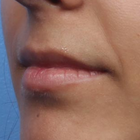
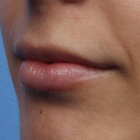
Half-side view
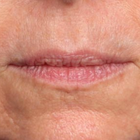
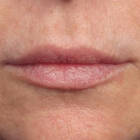
Front view
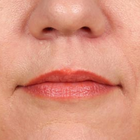
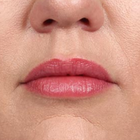
Front view
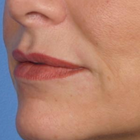
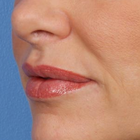
Half-side view
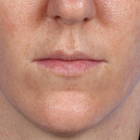
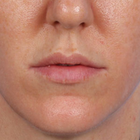
Front view
WHY US?
At Medijump, we're making medical easy. You can search, compare, discuss, and book your medical all in one place. We open the door to the best medical providers worldwide, saving you time and energy along the way, and it's all for FREE, no hidden fees, and no price markups guaranteed. So what are you waiting for?

Free

Best Price

Widest Selection

Risk-Free
What you need to know about Lip Augmentation in Bulgaria
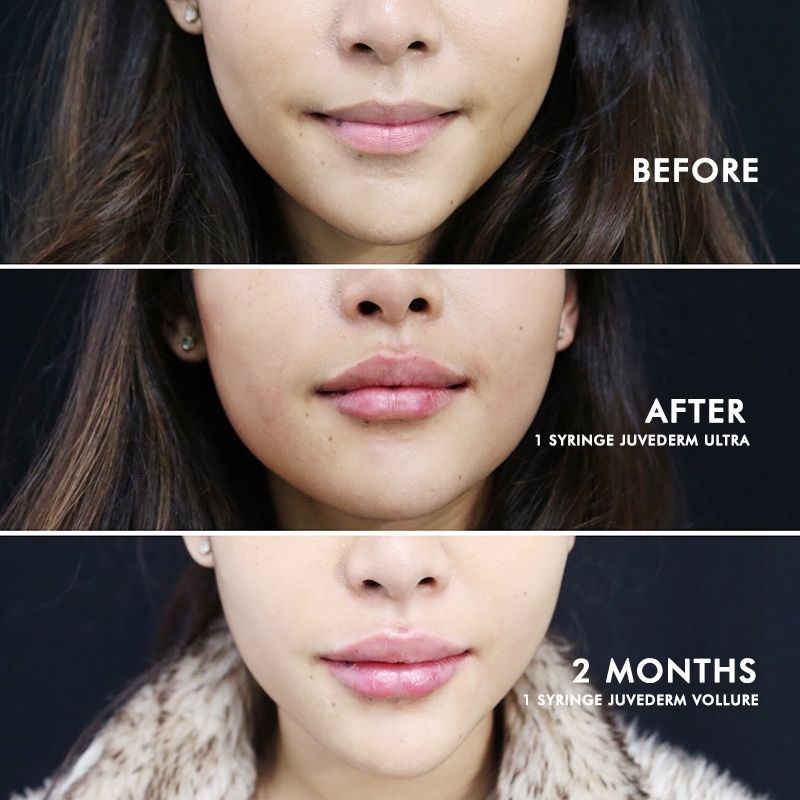
Also known as a Lip Enhancement, Lip Augmentation is a surgical procedure aimed at improving the fullness and appearance of the lips by enlarging them. There are two main types of lip augmentation: filler injections and implants. Simple filler injections can be used for short-term effects, whilst implants offer a more long-term solution to less defined or naturally thin lips.
Today, lip filler is the more popular type. Whether you want fuller lips with more volume or to balance your lip shape, dermal fillers can help you get the lips you've always wanted. If you are worried about lines around the lip area and notice your lipstick ‘bleeding’ into these lines, often having lip filler injected can help to soften these fine lines as well.
It's important to have realistic expectations about the outcome. Enhanced lips may make your lips plumper and fuller, but you will still be you when you walk out of the doctor's office. Click the image to see more Before and After photos.
Your doctor can discuss with you the pros and cons of your lip augmentation options and help you decide which technique or product is best for you.
What does a Lip Augmentation Procedure Involve?
Lip Augmentation with Implants
Before you undergo a lip implant procedure, your doctor will determine what size of lip implant would be best for you. During the procedure, your doctor sterilizes the skin around the surgical area. Then the lips are anesthetized with local anesthesia. Your doctor will make an incision in each corner of your mouth. Then, a tunnel in your lip is created using an instrument known as a curved alligator clamp. The implant is grasped into the lip tunnel and positioned underneath the lip fat above the lip muscles. The last step is closing the incisions with absorbable sutures. The implants are usually made of soft, pliable silicone rubber or biodegradable substance. Lip implants offer a semi-permanent lip enhancement for people who want a more lasting solution with minimal maintenance. The benefit of lip implants is the results that can last for many years.
Lip Augmentation with Fillers
During a lip filler injection, a topical anesthetic will be applied to your lips so you won't feel any pain. Then, a thin needle will be used to inject the lip filler into any or all parts of your lips, including the curve in the center of your upper lip (Cupid's bow), the edges of your lips (vermilion border), and your oral commissures (corners of your mouth).
The amount of lip filler injected depends on how much plumper you want your lips to be. On average, your doctor may insert 1 milliliter of lip filler into your lips.
There are also other methods to perform lip augmentation, including fat grafting, tissue grafting, or local flap grafts. However, they are not commonly performed since they have a greater risk of complications.
How Long Should I Stay in Bulgaria for a Lip Augmentation Procedure?
For lip fillers, the whole treatment takes only 15 to 30 minutes and you may go home straight after the procedure. Lip implants may take longer, at least around 30 minutes. Plan to stay in Bulgaria longer, at least a week or until your doctor says you can travel home.
What's the Recovery Time for Lip Augmentation Procedures in Bulgaria?
For several hours after the procedure, your lips will be numb. You will need a minimum of three days off from work. You should not do any exercise for a few days after filler injections and for a few weeks after lip implants. In general, your recovery can take up to two weeks before you are allowed to go back to your normal routine.
What sort of Aftercare is Required for Lip Augmentation Procedures in Bulgaria?
Following the procedure, you may use ice to ease discomfort and control swelling and avoid using any lipstick or lip products for several days. It is also advised not to eat anything hard at least until you have full sensation in your lips. You can eat plenty of soft foods, such as pudding, oatmeal, yogurt, or anything that does not require chewing. Your doctor may prescribe ointment or cream to put on the treated areas.
What's the Success Rate of Lip Augmentation Procedures in Bulgaria?
Lip augmentation, particularly lip fillers, has a high success rate. Many patients have said that the procedure has boosted their self-image and self-confidence. Remember that you will need to undergo another lip filler injection after six to eight months, or depending on the case, your lip filler may also last for 9 to 12 months. There are several side effects, complications, and risks to be aware of before you undergo lip augmentation.
Side effects of fillers that should only last a few days:
- Bleeding from the injections sites
- Swelling and bruising
- Reactivation of cold sores or fever blisters
- Redness at the site of injections.
If the symptoms above do not subside after a few days, you need to call your doctor. There are also more serious side effects or risks, such as severe and prolonged swelling, lip asymmetry, lumps in the lips, ulceration, allergic reaction, tissue loss, and infection. Call your doctor immediately if you experience any of those symptoms.
To see how lip fillers are applied and the speed at which the procedure can be completed, watch this short video.
Are there Alternatives to Lip Augmentation Procedures in Bulgaria?
If you do not want to undergo implant or filler injections, there are several alternatives. One of the newest alternatives is lip threading, which passes miniature threads or sutures through a small tube to elevate the skin and create tension. You can also opt for topical lip plumper’s, usually in the form of lip gloss made with either hyaluronic acid or collagen. It will give you a tingly sensation that causes your lips to swell.
Whilst the information presented here has been accurately sourced and verified by a medical professional for its accuracy, it is still advised to consult with your doctor before pursuing a medical treatment at one of the listed medical providers
No Time?
Tell us what you're looking for and we'll reachout to the top clinics all at once
Enquire Now

Popular Procedures in Bulgaria
Prices Start From $111

Prices Start From $16

Prices Start From $220

Prices Start From $340

Prices Start From $101

Prices Start From $53

Prices Start From $5

Prices Start From $278

Recommended Medical Centers in Bulgaria for procedures similar to Lip Augmentation

- Interpreter services
- Translation service
- Religious facilities
- Medical records transfer
- Medical travel insurance
- Health insurance coordination
- TV in the room
- Safe in the room
- Phone in the room
- Private rooms for patients available

- Interpreter services
- Translation service
- Religious facilities
- Medical records transfer
- Medical travel insurance
- Health insurance coordination
- TV in the room
- Safe in the room
- Phone in the room
- Private rooms for patients available

- Interpreter services
- Translation service
- Religious facilities
- Medical records transfer
- Medical travel insurance
- Health insurance coordination
- TV in the room
- Safe in the room
- Phone in the room
- Private rooms for patients available

- Interpreter services
- Translation service
- Religious facilities
- Medical records transfer
- Medical travel insurance
- Health insurance coordination
- TV in the room
- Safe in the room
- Phone in the room
- Private rooms for patients available
Lip Augmentation in and around Bulgaria
Introduction
Bulgaria has plenty to offer and tourists are going to be very impressed with the country’s mountainous landscapes, beautiful Black Sea beaches, fascinating history, friendly locals, lively nightlife, and affordability. Although the country’s holiday tourism is very much on the radar, it is also actually quite popular with medical tourists, due to its modern medical centers, highly trained medical professionals, state-of-the-art equipment, affordable healthcare, and mineral baths, thousands of medical tourists visit this country each year. Most of the medical tourists come for dental treatment, orthopedic surgery, elective surgery, neurosurgery, as well as health screening.
Popular Cities and Regions in Bulgaria
Bulgaria’s laid-back capital city, Sofia, is truly a must-visit. It is full of museums, Ottoman mosques, communist architecture, chic galleries, Eastern Orthodox churches, amazing restaurants, and upbeat clubs. One of the most popular landmarks in the country is the Aleksander Nevski Cathedral, which is an awe-inspiring church built between 1882 and 1912 to honor 200,000 Russian soldiers who died fighting for the independence of Bulgaria during the Russo-Turkish war. If you want to relax on beautiful beaches visit Varna, which is a major tourist destination during the summer. The second-largest, city in Bulgaria is Plovdiv and it is one of the oldest continuously inhabited cities in Europe. Tourists are attracted by the Roman Amphitheatre, Archeological Museum, and Tsar Simeon Central Garden.
Transport in Bulgaria
Most international tourists will arrive at Sofia Airport, which serves flights to most numerous major cities in Europe and the Middle East. There are several budget airlines that operate flights from this airport, including Ryanair and Wizz Air. Domestic flights are available, but they tend to be expensive. Therefore, to travel from one city to another, trains and buses are the best option. Buses and trains are punctual and affordable. However, if you are in a hurry, you should avoid trains as they can be a little slow. To travel around big cities, taxis are widely available and are really cheap. Just make sure you choose a licensed taxi to avoid being overcharged.
Visas in Bulgaria
While Bulgaria is not yet a part of the Schengen Area, it has a visa policy that is based on the Schengen system. Therefore, holders of Schengen Visa are allowed to enter the country. Additionally, citizens of 62 countries, including the US, Australia, and the UAE, can stay in the country for up to 90 days without a visa.
Weather in Bulgaria
From June to August, Bulgaria experiences summer. The weather can get a bit hot and humid, with an average temperature of 19°C to 21°C. July is the wettest month in the country. Winter, from December to February, is usually freezing. Autumn and Spring bring pleasant weather.
Additional Info
- Local Currency: The official currency is the Bulgarian Lev (BGN). 1 USD will get you approx. 1.8 BGN.
- Money & Payments: You can find ATMs in every city in the country. Credit cards are accepted in bigger restaurants and hotels. Tipping is sometimes expected.
- Local Language: Bulgarian is the official language in Bulgaria. Turkish and Roma are spoken by a minority of people. English is becoming more and more common in the country, but it is not widely spoken.
- Local Culture and Religion: Christianity dominates the population of Bulgaria, followed by Islam and Judaism.
- Public holidays: Bulgaria celebrates several historical and religious holidays, such as Orthodox Good Friday, Orthodox Easter Day, Independence Day, Culture and Literacy Day, Christmas Day, and Liberation Day.
Popular Searches
- Plastic Surgery in Thailand
- Dental Implants in Thailand
- Hair Transplant in Thailand
- Breast Augmentation Thailand
- Gastric Sleeve in Thailand
- Gender Reassignment Surgery in Thailand
- Laser Hair Removal in Bangkok
- Botox in Bangkok
- Dermatology in Bangkok
- Breast Augmentation in Bangkok
- Coolsculpting in Bangkok
- Veneers in Turkey
- Hair Transplant in Turkey
- Rhinoplasty in Turkey
- Stem Cell Therapy in Mexico
- Rhinoplasty in Mexico
- Liposuction in Mexico
- Coolsculpting in Tijuana
- Rhinoplasty in Korea
- Scar Removal in Korea
- Gastric Sleeve in Turkey
- Bone Marrow Transplant in India
- Invisalign in Malaysia
- Plastic Surgery in the Dominican Republic
- Tummy Tuck in the Dominican Republic
- Plastic and Cosmetic Surgery in Poland
- Rhinoplasty in Poland
- Hair Implant in Poland
- Dental Implants in Poland
- IVF in Turkey